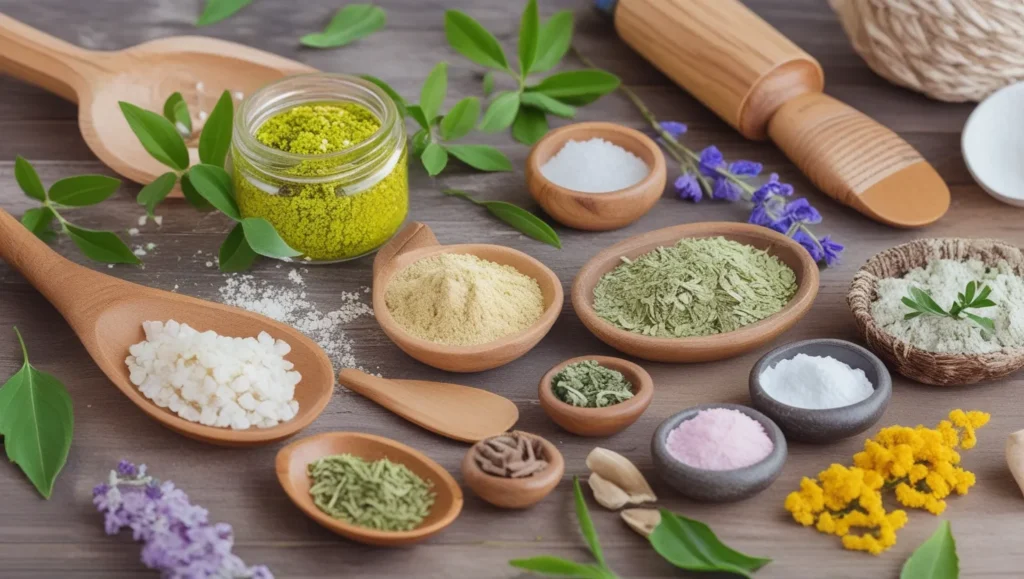Beauty Products Really Better for Your Skin
In recent years, the beauty industry has seen a significant rise in the popularity of organic skincare products. From serums to moisturizers, consumers are shifting Beauty Products Really Better for Your Skin towards products labeled as “organic” or “natural.” But the question remains: Are organic beauty products really better for your skin? Let’s delve into the benefits, drawbacks, and considerations to help you make an informed decision.
What Are Organic Beauty Products?
Organic beauty products are formulated using natural ingredients that are grown without the use of synthetic pesticides, herbicides, or genetically modified organisms (GMOs). These products are often free from harmful chemicals, artificial fragrances, parabens, and sulfates. Certified organic products typically meet strict standards set by regulatory bodies like USDA Organic or ECOCERT.
Benefits of Organic Beauty Products
- Gentle on the Skin: Organic skincare products are less likely to contain harsh chemicals and synthetic additives. This makes them ideal for people with sensitive skin or conditions like eczema, rosacea, or acne.
- Nutrient-Rich Formulations: Many organic products are formulated with plant-based ingredients like aloe vera, coconut oil, and shea butter. These ingredients are rich in vitamins, antioxidants, and essential fatty acids that nourish the skin.
- No Harmful Chemicals: Conventional beauty products often contain parabens, phthalates, and sulfates, which may disrupt hormones and irritate the skin. Organic products avoid these harmful additives.
- Environmentally Friendly: Organic farming methods minimize the use of toxic Beauty Products Really Better for Your Skin chemicals and reduce environmental pollution. Additionally, many organic beauty brands focus on sustainable packaging and cruelty-free practices.
- Better for Long-Term Skin Health: Using organic products may contribute to healthier skin over time. Natural ingredients often work synergistically with the skin’s natural barrier, promoting hydration, elasticity, and a radiant complexion.
Considerations Before Switching to Organic
- Effectiveness: While organic ingredients are beneficial, they may not always provide the same immediate results as synthetic alternatives. For example, chemical exfoliants may work faster than natural exfoliants like fruit enzymes.
- Cost Factor: Organic beauty products are often more expensive due to the cost of organic farming and certification processes.
- Shorter Shelf Life: Without artificial preservatives, organic products may have a shorter shelf life. Proper storage in a cool, dark place is essential.
- Potential Allergens: Natural ingredients can also cause allergic reactions. Essential oils and plant extracts may irritate some individuals. Always perform a patch test before use.
How to Identify Genuine Organic Products
- Look for Certifications: Ensure the product has a reputable organic certification like USDA Organic, COSMOS, or ECOCERT.
- Read the Ingredient List: Ingredients are usually listed in descending order by Beauty Products Really Better for Your Skin concentration. Be wary of products that claim to be organic but have a long list of synthetic chemicals.
- Research the Brand: Choose brands that are transparent about their sourcing, production practices, and ingredient origins.
When Organic Might Not Be the Best Choice
- Specific Skin Concerns: If you have severe acne, hyperpigmentation, or require medical treatments, dermatologically-tested, synthetic products may offer quicker and more targeted results.
- Budget Constraints: High-quality organic products can be expensive. If you’re on a budget, prioritize essential products like cleansers and moisturizers rather than luxury organic items.
- Lack of Preservation: For some formulations, preservatives are necessary to prevent bacterial growth. In such cases, a balance of safe synthetic ingredients might be beneficial.
Final Thoughts
Organic beauty products can be a healthier and more sustainable choice for your skin and the environment. They offer gentle, nourishing care without the risks of harmful chemicals. However, not all skin types may respond the same way, Beauty Products Really Better for Your Skin and for some concerns, conventional products might still be necessary.
The key is to understand your skin’s needs, read product labels, and choose brands committed to quality. Incorporating organic beauty products into your routine can be a step towards healthier skin and a greener planet.
Ultimately, the choice between organic and conventional beauty products is a personal one. By staying informed, you can make decisions that are best for your skin and lifestyle.

